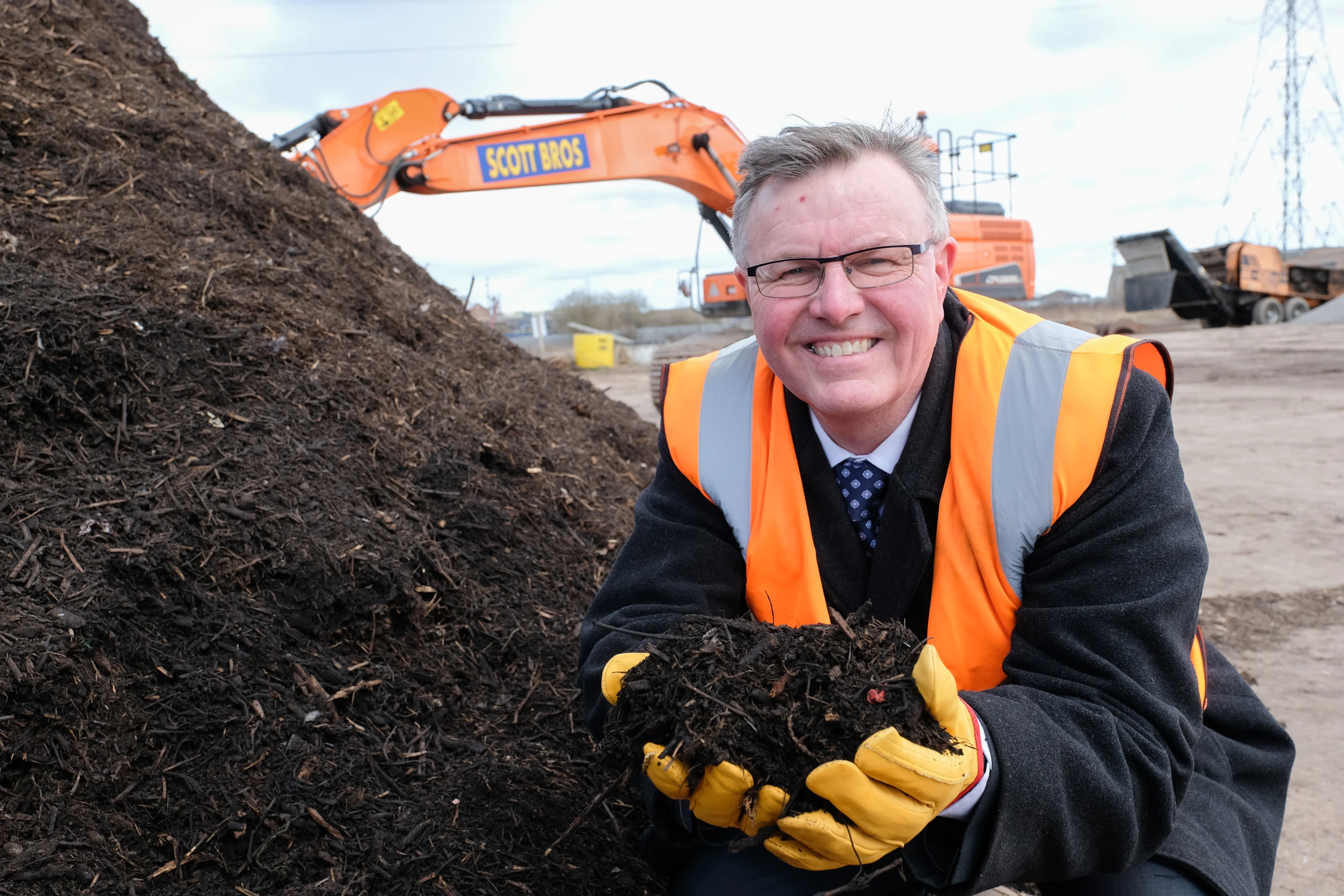
Teesside's Scott Bros. launches 'innovative' recycling scheme
Scott Bros., a Teesside waste haulage and recycling company, has expanded its recycling capabilities to support the DIY gardening and landscaping sectors with a new large-scale composting operation.
Building on its established position in the North East circular economy, the company has further invested in its operations to transform more of the waste it receives into high-quality compost.
Bob Borthwick, Scott Bros.’ commercial manager, said: “We are continually looking at ways to recycle as much of the waste we receive and this new composting operation will be of real benefit to the agricultural and gardening markets.
“The vast spaces available at Norton Bottoms means we can expand this service as part of our circular economy activities at the site, [including] recycling wood and soils as well as our reed beds, which cleans contaminated water from street sweeping operations.
“This is the first stage of our operations in this area as we are exploring ways to develop our composting processes as we begin to source and receive more green waste from new customers across the North East.”
Processed at its site at Norton Bottoms, adjacent to the A19 flyover, the compost is produced using large amounts of green waste collected from Scott Bros.’ commercial customers including a number of local authorities.
It has already generated several hundred tonnes of compost that has been prepared for use on commercial and residential premises.
Collected green waste is shredded, reducing the decomposition time encouraging the movement of microbes, and is then placed in long rows onto an impermeable surface in a process call window composting.
Once cured, the compost is then available to customers through delivery or collection, enabling Scott Bros to support customers in the commercial agriculture, landscaping and DIY markets.
Scott Bros. adopted the new composting method after it received its environmental permit to compost green waste last year.
The procedure is undertaken under the Publicly Available Specification (PAS 100), which provides guidelines for large-scale, licensed composting facilities as part of the permit.
Looking to promote your product/service to SME businesses in your region? Find out how Bdaily can help →
Enjoy the read? Get Bdaily delivered.
Sign up to receive our daily bulletin, sent to your inbox, for free.








 The value of using data like a Premier League club
The value of using data like a Premier League club
 Raising the bar to boost North East growth
Raising the bar to boost North East growth
 Navigating the messy middle of business growth
Navigating the messy middle of business growth
 We must make it easier to hire young people
We must make it easier to hire young people
 Why community-based care is key to NHS' future
Why community-based care is key to NHS' future
 Culture, confidence and creativity in the North East
Culture, confidence and creativity in the North East
 Putting in the groundwork to boost skills
Putting in the groundwork to boost skills
 £100,000 milestone drives forward STEM work
£100,000 milestone drives forward STEM work
 Restoring confidence for the economic road ahead
Restoring confidence for the economic road ahead
 Ready to scale? Buy-and-build offers opportunity
Ready to scale? Buy-and-build offers opportunity
 When will our regional economy grow?
When will our regional economy grow?
 Creating a thriving North East construction sector
Creating a thriving North East construction sector